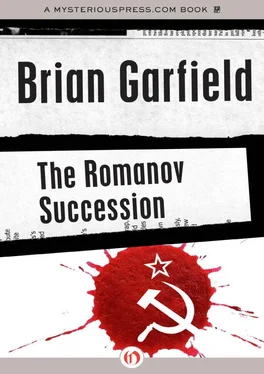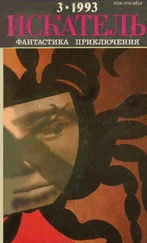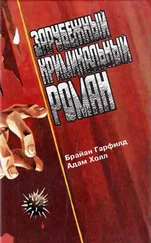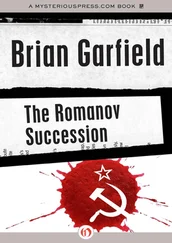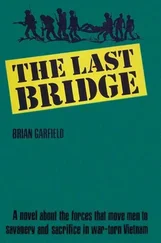The body of water called Ladoga was a lake in geographer’s terms but it was an oval 300 miles by 200 miles and it might as well have been an ocean. A 50-mile-wide neck of land lay between the western shore of Ladoga and the eastern shore of the Baltic Sea’s Gulf of Finland; the isthmus connected Europe with Scandinavia and it was here that the opposing armies were drawn up with their flanks anchored against the two shores. The surface of Ladoga was frozen to a depth of two feet or more and would have supported the weight of route-stepping troops but there was no cover on the open ice and the war stayed in the forested hills.
At dawn an artillery duel began and from thirty miles south of the battleground Alex saw the flashes. Fifteen minutes later they began to feel the concussive rumble, transmitted up from the gravel surface of the road through the tires and springs of the Pobeda ambulance,
They had cut wide to the east around the environs of besieged Leningrad and the cleated tires of the ambulance slithered on the unpaved subsidiary track; it had been mashed down by convoys of tanks and heavy lorries moving to and from the Finnish front. The ambulance ran along in second gear bracketed between a field-kitchen supply truck and a half-track troop-carrier; steady streams of traffic moving both ways along the narrow track, skittering on the verges and occasionally colliding.
Sergei had the map open in his lap but it was a chart left over from the 1939 war, something they’d taken off a captured Russian captain in Vassily’s interrogation tent; there was no way to know how much had been changed since those days. “Just ahead—the turning to the right.”
Alex obeyed the old man’s navigational instructions and the ambulance heaved into a narrow rutted track. Tanks had been along here but not in the past twenty-four hours; there was a crust of fresh snow in the ruts. The trees crowded thick against the track and branches kept whipping the ambulance.
The turn had taken them out of the convoy and they were alone in deep woods. The artillery wasn’t more than three or four miles north of them—to the left now. The earth shook steadily and the racket was intense. The guns had been talking for nearly half an hour and that was a little bit encouraging because an extended field-gun barrage at daybreak often presaged an assault and if the Red Army was poised to go into battle then things would be confused along the extended flanks; that sort of confusion might play into their hands.
He had a look at the gauges. The engine was running slightly hot on poor fuel but it wasn’t at the boil-over point; the oil pressure was steady on fifty and the ammeter was centered. There was half a tank of fuel and that would be enough, one way or the other.
The road staggered fitfully. In clearings they passed knots of soldiers and the occasional parked vehicle. Each time he tensed up and saw Sergei lift the tommygun into his lap but no one challenged them and they chugged on into the morning. At half past ten the artillery ceased fire—a dozen miles behind his left shoulder. The track made a turning to the north and Sergei said, “Soon now,” and folded the map neatly away.
It crested a hundred yards ahead. He parked the ambulance in the road before they reached the top. He got out and took the tommygun; as he approached the skyline he went into the trees and jinked from pine to pine until he was on top. Then he slipped out to the edge of the road and looked down the far slope.
The track ran down toward the shore and made a right turn and disappeared beyond the end of the trees. Winds had swept big patches of the lake free of snow and the ice was grey and translucent. At the foot of the road where it made its sharp turning at the shoreline there was a rickety wooden dock and beside it was a ramp used in peacetime by fishermen hauling their boats in and out of the water. The ramp was covered with several inches of powder snow but its outlines were clearly defined. On the dock stood a crude corrugated structure—a sentry post with some sort of wood stove in it; smoke curled from a round metal chimney. There was a loop antenna on the roof of it. Spotters then: posted along the bank of the lake to give warning of any Finnish advance across the open ice. And there were 55mm howitzers stationed along the shore; he only saw two of them—one on either side of the dock—but there’d be a good many more strung out in the trees at the edge of the lake.
Without hurry he studied the landscape, deciphering the clues in the snowy hills and the irregular shore. Finally he faded back into the woods and tramped down to the ambulance.
They were all outside stamping their feet. Sergei dragged a glove across his face and spat in the snow. “It’s all right?”
“It’ll have to do. They’ve got fifty-fives at two-hundred-meter intervals along the shore. Probably machine-gun bunkers too.”
Corporal Voroshnikov said, “Perhaps we should go farther east.”
“We haven’t the fuel for that.”
Sergei said, “How does the ice look?”
“Thick enough.” He tossed the tommygun inside and climbed up. “Let’s go.”
By now every shore position would have been alerted by Moscow to stop any vehicle or personnel trying to escape to the north. There was no way to bluff a passage with false papers. They might have his description.
His commando had to break through the Red line somewhere and this was the most thinly defended piece of it. Ram through onto the lake and get out beyond the range of the guns and cut a semicircular route toward the Finland shore: that was the plan now and it was all they had left. He put the ambulance in gear. The rear wheels slipped a little but then the cleats found purchase and it lurched uphill.
At the crest he still had her in low gear. He shifted before feeding fuel to the carburetor and he picked up speed smoothly on the downslope.
The ambulance bucked and wobbled, slithering from side to side in the ruts. Sergei had his window open and his gun in both hands and the cold wind was awful. Now it was two hundred yards to the boat ramp and the ambulance was still picking up speed but not too much because there’d be a hard bump at the top of the ramp: try to hold it down to something between fifty and sixty kilometers.
A man stepped out of the spotter shed—probably alerted by the noise. Shouted to someone inside the shack and lifted a rifle to his shoulder. Alex saw the muzzle zero in. Then his ears were battered by the staccato slamming of Sergei’s automatic nine-millimeter. The bullets knocked the soldier back against the wall of the shack; when he slid down he left a red smear on it. Then Alex was wrenching the wheel left and smashing through the drifts at the head of the boat ramp and Sergei was twisted around in the lurching seat, spraying the doorway of the shack to keep their heads down inside. The ambulance went over the lip of the ramp: the front wheels slammed down with an impact that threw him forward against the steering wheel; it was sideslipping and he fought to correct but it kept turning and went down the ramp with the back tires spinning on the ice at a three-quarter angle: for a moment he was sure they were going to capsize. But the ambulance held upright and he fed a little fuel; the tires made a tentative grab and squirted tangentially onto the lake ice. Now they’d find out if it was thick enough to hold the weight.
He heard glass shatter musically and the confined roaring of a gun in the back of the ambulance—Voroshnikov or one of the others firing at the spotter shack through the rear windows of the ambulance. It was still spinning slowly on the ice; he had to turn the front wheels that way with the skid. The spin took them right back along the shore on the left but when the wheels vectored into the bank they gained enough traction to send the ambulance spurting forward and he turned the wheel with an easy slow motion so that it curved gently away from the shoreline and began to run out onto the frozen open surface. He kept it to a very slow curve because anything more would break them loose again, send them spinning. But it was an angle that held them too close inshore for too long and the trees erupted in machine-gun fire. He saw them chop white smears and dashes in the ice and heard the whine as they ricocheted away and then one or two of the guns had the range and there was lead chugging into the back. If one of them blew the fuel tank or ruptured the tires that was that.
Читать дальше
